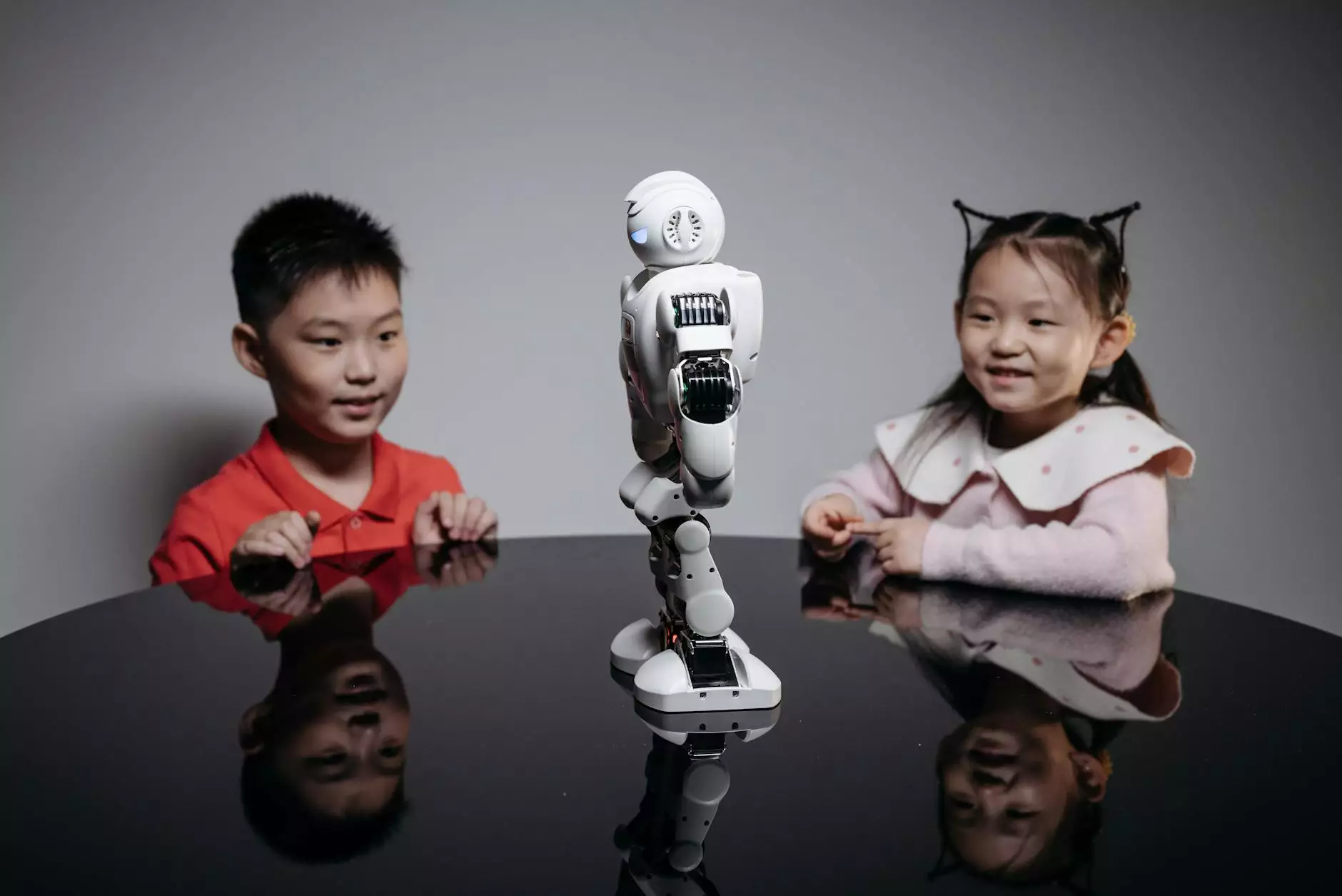Maximizing Entrepreneurial Success in Education: The Future of AI and Special Education

In today’s rapidly evolving technological landscape, the intersection of business and education presents countless opportunities for innovation, particularly in the realm of special education. As we delve into this journey, we will explore how integrating AI solutions can elevate educational services and create a substantial impact on both educators and students.
Understanding the Role of AI in Education
Artificial Intelligence (AI) has been revolutionizing various sectors, and education is no exception. By analyzing student data, AI can tailor learning experiences that meet the individual needs of each student. This approach is particularly beneficial in special education, where personalized learning strategies can significantly enhance educational outcomes.
The Importance of Personalized Learning
Personalized learning strategies enable educators to deliver content tailored to the unique requirements of each student, especially those with learning disabilities. Here are a few ways AI contributes to personalized learning:
- Adaptive Learning Platforms: These platforms use AI algorithms to adjust the difficulty level and types of exercises based on students' performance.
- Real-Time Feedback: AI tools provide immediate feedback to students, allowing them to learn from their mistakes and improve their skills more effectively.
- Enhanced Engagement: By incorporating gamification and interactive elements, AI ensures that students remain engaged, which is particularly crucial for those with attention-related challenges.
AI Applications in Special Education
Special education can significantly benefit from AI-driven technologies. Here are several innovative applications:
1. Intelligent Tutoring Systems
Intelligent tutoring systems utilize AI to create a supportive learning environment. These systems assess a student’s understanding and deliver customized lessons accordingly. For students with special needs, this technology can provide a supportive, patient, and responsive educational experience.
2. Speech Recognition Tools
For students with speech impairments, AI-driven speech recognition tools can facilitate communication. These tools can help translate spoken words into text, making it easier for students to participate in class discussions and complete assignments.
3. Predictive Analytics
By employing predictive analytics, educators can identify students at risk of falling behind. This proactive approach allows interventions to be implemented before academic decline occurs, ensuring that no student is left behind.
Benefits of AI in Educational Businesses
Integrating AI technologies into educational businesses, especially in the realm of special education services, offers various benefits:
1. Improved Operational Efficiency
AI can streamline administrative tasks, from scheduling to grading, allowing educators to focus more on teaching and less on paperwork. This increased efficiency can lead to better resource allocation and enhanced educational outcomes.
2. Data-Driven Decision Making
AI systems can analyze large datasets to provide insights that drive strategic decisions. Understanding which strategies yield the best results allows educational institutions to continuously improve their methodologies.
3. Scalable Solutions
AI-powered educational tools can be scaled to serve a larger number of students without compromising quality. This scalability is vital for organizations looking to expand their services while maintaining high educational standards.
Navigating Challenges in AI Adoption
While the benefits of AI in education are significant, challenges remain. Some of the major hurdles include:
1. Data Privacy Concerns
As educational institutions increasingly collect data to power AI systems, it is essential to maintain stringent data privacy policies. Protecting student information is paramount in building trust with stakeholders.
2. Integration with Existing Systems
Transitioning to AI-integrated systems requires careful planning and execution. Institutions must evaluate their current infrastructures to ensure compatibility and ease of use.
3. Training Educators
For AI tools to be effective, educators must be trained in their usage. Ongoing professional development is necessary to help teachers harness the power of AI effectively in their classrooms.
The Future of AI and Special Education
The potential of AI in special education is vast and, as technology continues to advance, so too will the opportunities for innovative educational approaches. Below are some predictions for the future:
1. Continuous Evolution of AI Tools
AI tools will become even more sophisticated, allowing for greater personalization and responsiveness in education. Continuous learning algorithms will adapt to each student’s progress in real-time.
2. Enhanced Collaboration Between Humans and AI
The role of educators will evolve to become facilitators of learning, working closely with AI to enhance teaching methods. This collaboration will create opportunities for richer educational experiences.
3. Greater Access to Resources
As AI technology becomes more accessible, students with disabilities will have increased access to specialized tools and resources that cater to their unique learning needs. This shift will promote inclusivity within educational environments.
Conclusion: Leveraging AI for Educational Success
In conclusion, the integration of AI in the field of education and special education services offers transformative potential for both businesses and learners. By focusing on personalized learning, operational efficiency, and data-driven decision-making, educational institutions can revolutionize the way they deliver services.
As we look to the future, it is clear that businesses operating within the education sector must embrace these technological advancements to stay competitive and cater to the diverse needs of their student population, particularly those requiring special education services.
By harnessing the power of AI, educational businesses can not only improve learning outcomes but also ensure an equitable and enriching environment for every student. Join the revolution, and see how AI is set to redefine the landscape of education for generations to come.
Call to Action
If you're interested in exploring how AI can enhance your educational services and improve your business strategy, visit thesify.ai today to learn more and take the first step toward unlocking the future of education.









